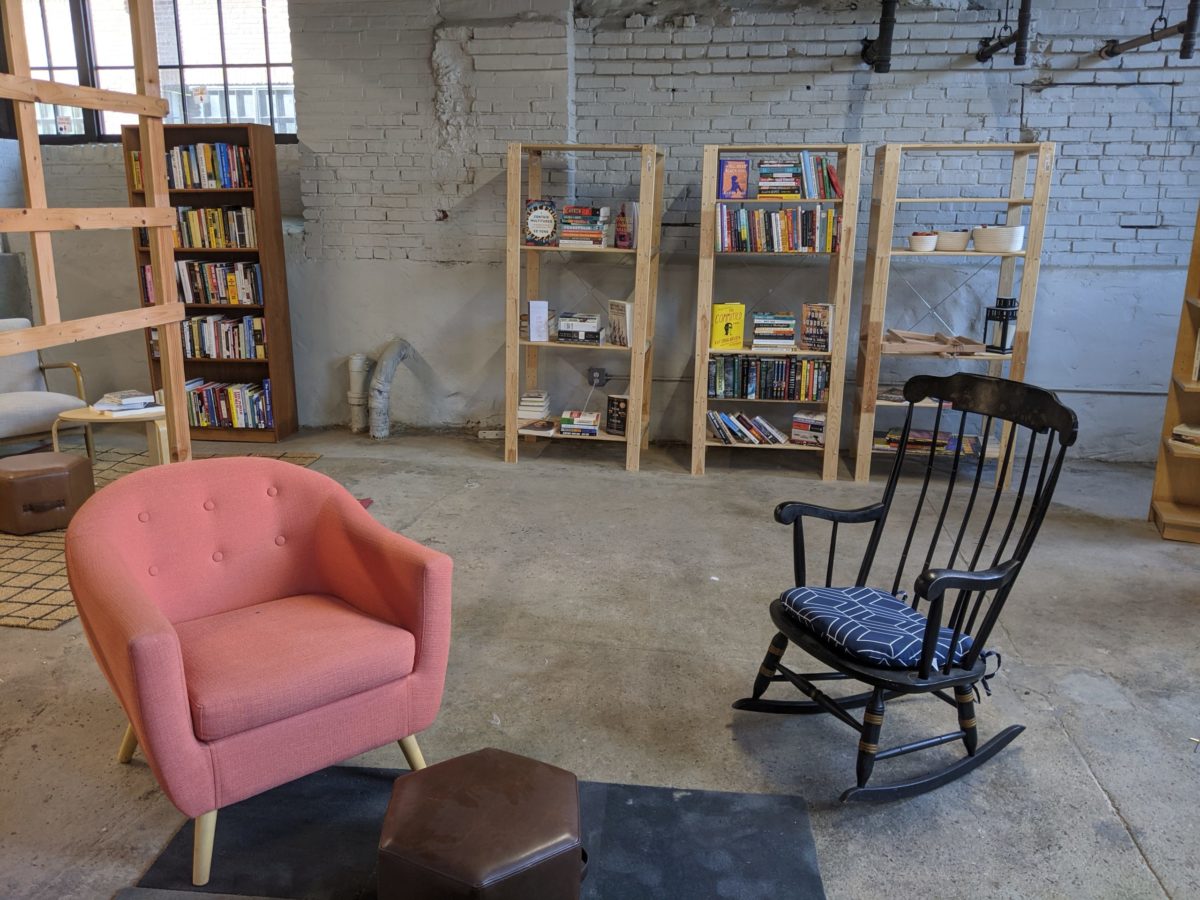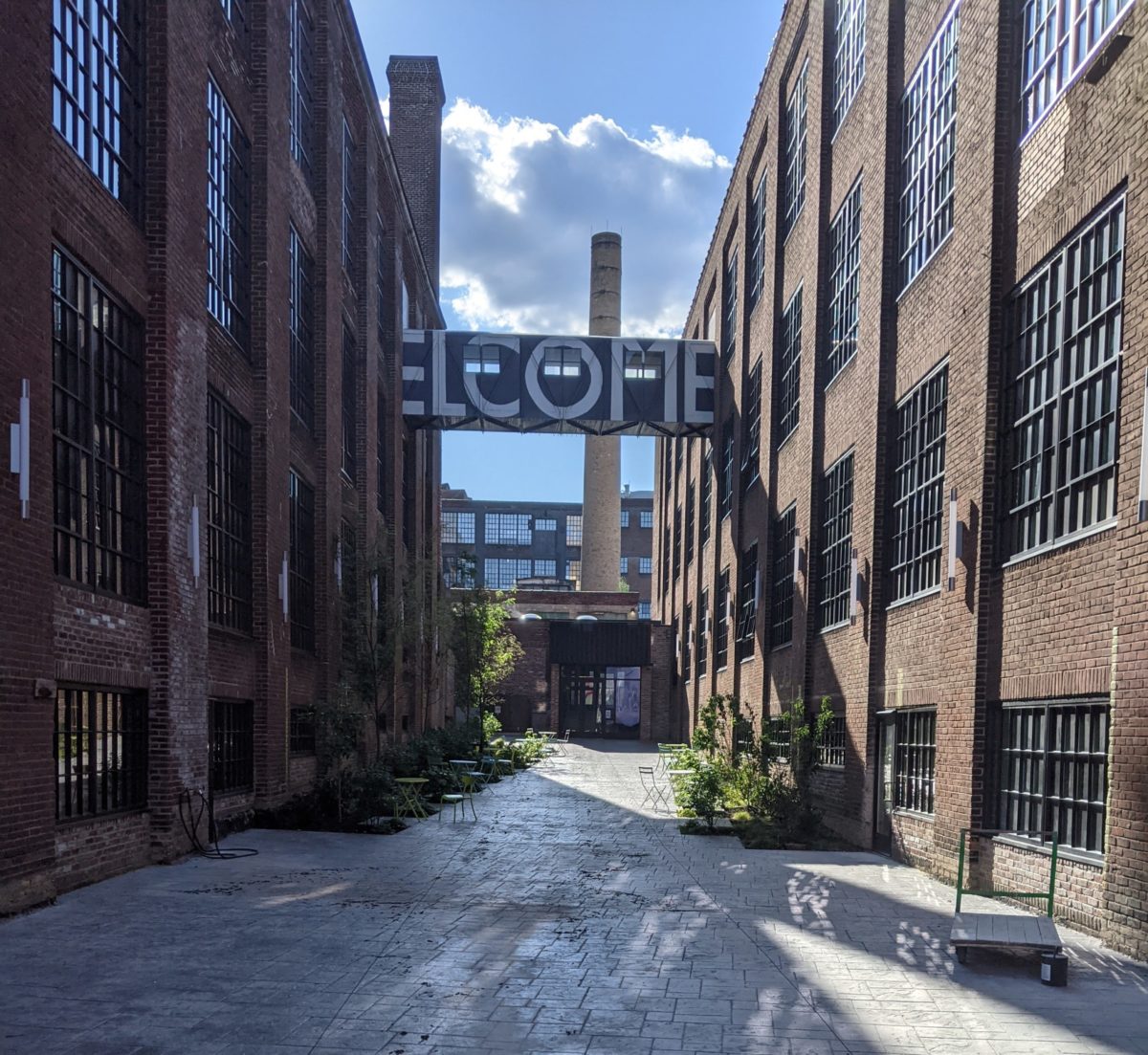The strength of an idea matters in determining its success. But so does the place where that idea is born, and the resources available to develop it.
In 2016, entrepreneur Tayyib Smith cofounded the Institute for Hip-Hop Entrepreneurship (IHHE) to give creative entrepreneurs from underrepresented backgrounds the skills to build sustainable businesses serving their communities. Five years later, he’s planning for Harrowgate’s IF Lab, aka The Idea Factory, to achieve similar results.
Named for the possibilities that could develop for entrepreneurs if given the chance, the 3,3000-square-foot coworking and incubator space is located within a 30,000-square-foot building nearly finished in construction. It already has neighbors with similar social impact business goals like Vietnamese coffee roastery Càphê Roasters.
“Through that nine-month endeavor, most of the ideas people created had to do with developing space,” he told Technical.ly about IHHE, the Knight Foundation-funded program that graduated one cohort in 2017. “[One] young woman had an idea about nail salons and using those as creative spaces.”
Smith saw the value of using space to help creative entrepreneurs flourish, and after discussions with his Little Giant Creative cofounder, Meegan Denenberg, decided that such a hub was needed in a community unlike Center City, where he cofounded coworking space Pipeline. That’s because Center City’s infrastructure and resources are frequently inaccessible to youth from Black and brown neighborhoods, he said. In selecting IF Lab’s advisory board, Smith is in talks with a “very robust and receptive” group of individuals from a diversity of backgrounds who can also provide resources for participants in a forthcoming IF Lab accelerator.

Interior view of IF Lab’s reading space. (Photo by Michael Butler)
Through Smith’s entrepreneurial career, he’s run into challenges accessing funding as a Black man pitching his ideas to potential funders of backgrounds different from him. He wants the creators who work at IF Lab to have a different experience once their businesses get to that stage.
“There’s an element of constantly having to pitch or tap dance to institutions or supposed it leaders, whether bureaucratic, private money or nonprofit, who have no wins in the streets,” he said, echoing a sentiment we’ve heard from many Black and brown founders. “It is just this exhausting thing.”
The idea of place as an entrepreneurial anchor is important, too. Smith’s friends and fellow Philly natives Mont Brown and Yusuf Muhammad told Technical.ly they left the city because didn’t find the support they needed here to grow their own creative careers, with Brown suggesting that a neighborhood-based youth program could help develop the next generation of local successes who say to grow. And startup founder and investor Jon Gosier cited a lack of local funding as a reason to go.
Could more business-building resources at a hyperlocal level make a difference?
In June 2020, Smith’s development firm, Smith & Roller, first announced plans for a shared workspace near 52nd and Arch streets in West Philadelphia, meant to attract local entrepreneurs who are less likely to want to travel to Center City for business resources. On the opposite side of the city, IF Lab’s location in Harrowgate, a low-income neighborhood adjacent to Kensington, is intentional and has similar goals. According to Smith, pockets of the neighborhood have households that average $20,000 in income a year. But with success, IF Lab’s entrepreneurs could change the living conditions of an entire community, he said.
“As someone who is Philadelphia, I know the complications of gentrification,” he said. “So with this project, it is going to have some level of impact on the housing and the consumers around here. There should also be something that has a regenerative benefit to community.”
The pandemic has significantly altered Smith’s initial plans for opening IF Lab. Smith first planned to open the space in September 2020, and that date was pushed back a number of times. As of now, he said, its opening date is TBD, but should be far away, as sections of the coworking space are already fully constructed.
Once IF Lab is open and fully functional, Smith hopes it can serve as a proof of concept for similar coworking spaces in other cities like Philly that have communities in need of entrepreneurial support.
“If you think of the dynamics of what we’re trying to build, this could be a West Philly,” he said, or any other primarily Black or brown community. “This could hopefully be the beginning of something long overdue, period.”
Michael Butler is a 2020-2022 corps member for Report for America, an initiative of The Groundtruth Project that pairs young journalists with local newsrooms. This position is supported by the Lenfest Institute for Journalism.Join the conversation!
Find news, events, jobs and people who share your interests on Technical.ly's open community Slack

Philly daily roundup: Closed hospital into tech hub; Pew State of the City; PHL Open for Business

Philly daily roundup: A better coffee supply chain; Philly Tech Week returns; Apply to Pennovation Accelerator

A biotech hub is rising at Philadelphia’s shuttered Hahnemann Hospital campus


